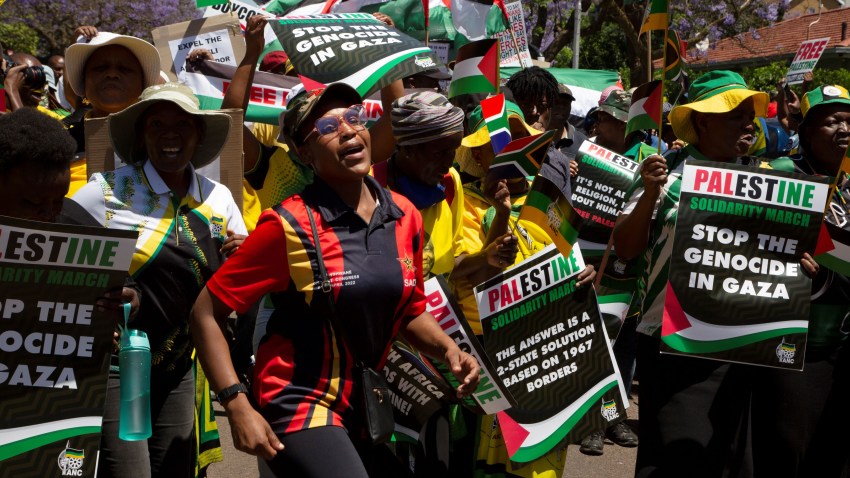Immediately after Hamas launched a series of coordinated attacks from the Gaza Strip into southern Israel on Oct. 7, Israel’s Western partners coalesced around a demonstration of unified support for Israel that is reminiscent of their collective response to Russia’s invasion of Ukraine in February 2022. Last week, U.S. President Joe Biden explicitly linked the two conflicts in a televised speech in which he requested $106 billion in emergency funding for Israel and Ukraine. “The assault on Israel echoes nearly 20 months of war, tragedy and brutality inflicted on the people of Ukraine,” Biden said, adding that “Hamas and Putin represent different threats, but they share this in common: They both want to completely annihilate a neighboring democracy.”
As the mounting civilian death toll in the Palestinian territories from Israel’s air strikes in Gaza—as well as attacks on Palestinians by Israeli security forces and settlers in the West Bank—triggered a global backlash against Israel’s response to the attack of Oct. 7, however, both the U.S. and its European allies complemented that unequivocal support for what they called Israel’s right to defend itself with calls for Israel to respect international law in its fight against Hamas. They have also begun to pressure Israel to allow immediate humanitarian access to Gaza and pause its anticipated ground invasion there to allow more aid to enter.
That shift reflects the contest for global opinion currently underway over the Israel-Hamas war. And in many ways, it too is unfolding along similar lines to the initial global response to Russia’s all-out invasion of Ukraine.

